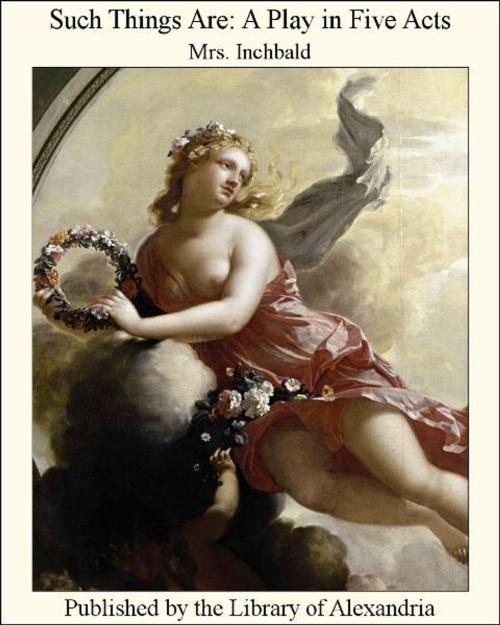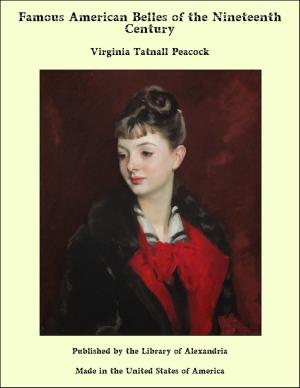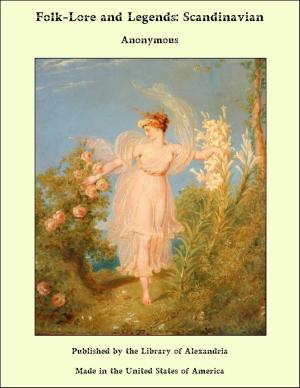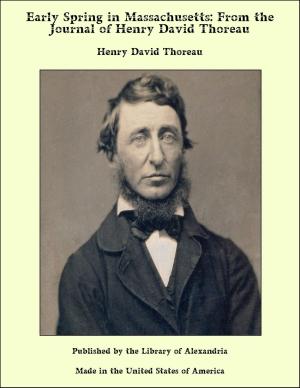Such Things are: A Play in Five Acts
Nonfiction, Religion & Spirituality, New Age, History, Fiction & Literature| Author: | Mrs. inchbald | ISBN: | 9781465520289 |
| Publisher: | Library of Alexandria | Publication: | March 8, 2015 |
| Imprint: | Language: | English |
| Author: | Mrs. inchbald |
| ISBN: | 9781465520289 |
| Publisher: | Library of Alexandria |
| Publication: | March 8, 2015 |
| Imprint: | |
| Language: | English |
How say you, critic Gods, and you below; Are you all friends?—or here—and there—a foe? Come to protect your literary trade, Which Mrs. Scribble dares again invade— But know you not—in all the fair ones do, 'Tis not to please themselves alone—but you. Then who so churlish, or so cynic grown, Would wish to change a simper for a frown? Or who so jealous of their own dear quill, Would point the paragraph her fame to kill? Yet such there are, in this all-scribbling town, } And men of letters too—of some renown, Who sicken at all merit but their own. But sure 'twere more for Wit's—for Honour's sake, To make the Drama's race—the give and take. [Looking round the house. My hint I see's approv'd—so pray begin it, And praise us—roundly for the good things in it, Nor let severity our faults expose, When godlike Homer's self was known to doze. But of the piece—Methinks I hear you hint, Some dozen lines or more should give the tint— "Tell how Sir John with Lady Betty's maid Is caught intriguing at a masquerade; Which Lady Betty, in a jealous fit, Resents by flirting with Sir Ben—the cit. Whose three-feet spouse, to modish follies bent, Mistakes a six-feet Valet—for a Gent. Whilst Miss, repugnant to her Guardian's plan, Elopes in Breeches with her fav'rite man." Such are the hints we read in Roscius' days, By way of Prologue ushered in their plays. But we, like Ministers and cautious spies, In secret measures think—the merit lies. Yet shall the Muse thus far unveil the plot— This play was tragi-comically got, Those sympathetic sorrows to impart Which harmonize the feelings of the heart; And may at least this humble merit boast, A structure founded on fair Fancy's coast. With you it rests that judgement to proclaim, Which in the world must raise or sink it's fame.
How say you, critic Gods, and you below; Are you all friends?—or here—and there—a foe? Come to protect your literary trade, Which Mrs. Scribble dares again invade— But know you not—in all the fair ones do, 'Tis not to please themselves alone—but you. Then who so churlish, or so cynic grown, Would wish to change a simper for a frown? Or who so jealous of their own dear quill, Would point the paragraph her fame to kill? Yet such there are, in this all-scribbling town, } And men of letters too—of some renown, Who sicken at all merit but their own. But sure 'twere more for Wit's—for Honour's sake, To make the Drama's race—the give and take. [Looking round the house. My hint I see's approv'd—so pray begin it, And praise us—roundly for the good things in it, Nor let severity our faults expose, When godlike Homer's self was known to doze. But of the piece—Methinks I hear you hint, Some dozen lines or more should give the tint— "Tell how Sir John with Lady Betty's maid Is caught intriguing at a masquerade; Which Lady Betty, in a jealous fit, Resents by flirting with Sir Ben—the cit. Whose three-feet spouse, to modish follies bent, Mistakes a six-feet Valet—for a Gent. Whilst Miss, repugnant to her Guardian's plan, Elopes in Breeches with her fav'rite man." Such are the hints we read in Roscius' days, By way of Prologue ushered in their plays. But we, like Ministers and cautious spies, In secret measures think—the merit lies. Yet shall the Muse thus far unveil the plot— This play was tragi-comically got, Those sympathetic sorrows to impart Which harmonize the feelings of the heart; And may at least this humble merit boast, A structure founded on fair Fancy's coast. With you it rests that judgement to proclaim, Which in the world must raise or sink it's fame.















